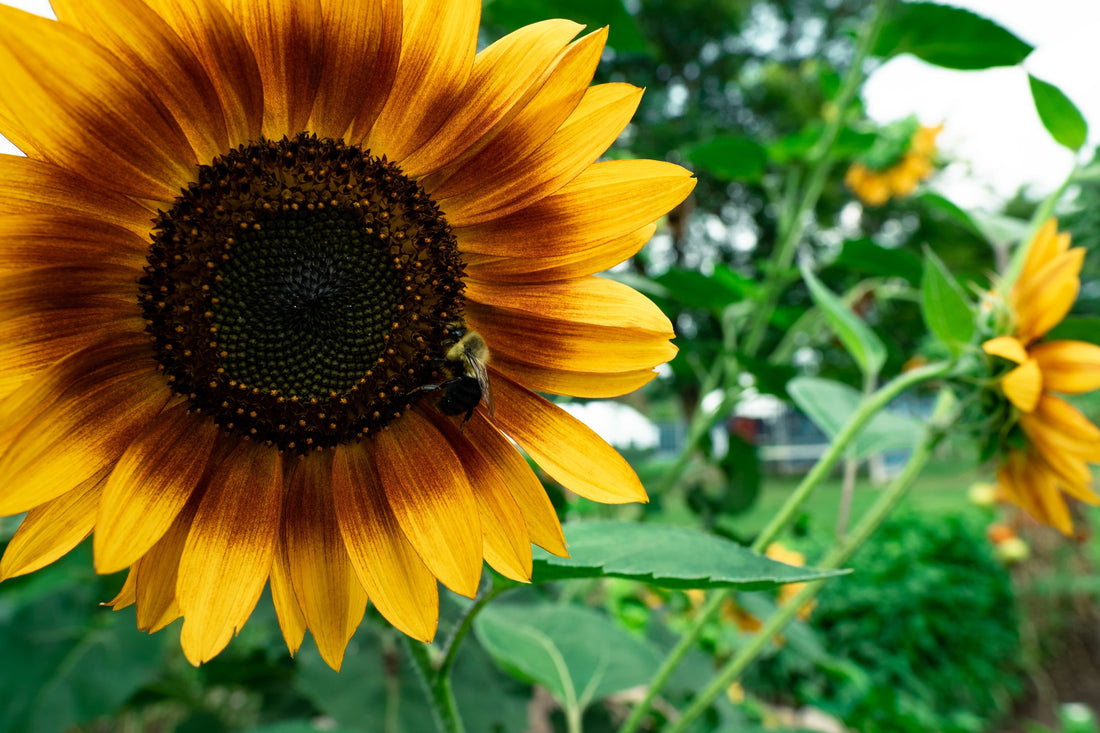
4 Easy Ways to Save Pollinators (and Help Honey Bees Thrive)
Share
Here at Mitchem Bee Company, we're passionate about the incredible work of pollinators, especially our beloved honey bees. These tiny powerhouses are essential for everything from the food on our tables to the beauty of our natural landscapes. But their populations are facing significant challenges.
You might want to help, but not be sure where to start. The good news is, making a difference for pollinators is simpler than you might think! By adopting a few bee-friendly practices, you can create a haven for these vital creatures right in your own backyard and beyond.
Mow Less, Give More to Nature
One of the easiest ways to help pollinators is to mow less. That perfectly manicured lawn, while aesthetically pleasing to some, is often a desert for bees and other beneficial insects. Allowing your lawn to grow a bit taller encourages clover, dandelions, and other "weeds" to bloom. These are actually fantastic early-season food sources for pollinators when other flowers might be scarce. Even leaving a small section of your yard unmowed can provide crucial habitat and foraging opportunities. Think of it as creating a mini-meadow for the buzzing community!
Plant More: A Buffet for Bees
Beyond mowing less, actively planting more pollinator-friendly flowers is perhaps the most impactful step you can take. Think of your garden as a living buffet for bees, butterflies, and other essential insects. Choose a diverse range of native plants that bloom at different times of the year, providing a continuous food supply from spring through fall. Single-petal flowers are generally best, as they offer easier access to nectar and pollen. Consider vibrant options like coneflowers, asters, sunflowers, and bee balm – your garden will look beautiful, and the bees will thank you!
Don't Spray (and Talk to Your County!)
This one is critical: don't spray pesticides, herbicides, or fungicides in your yard. Many common chemicals used to control "pests" are highly toxic to bees and other beneficial insects, either directly killing them or weakening their immune systems. Opt for natural pest control methods, or simply tolerate a few garden visitors.
Furthermore, consider taking your advocacy a step further by calling your local county office or public works department to ask them to not spray your yard, roadside, or local parks with harmful chemicals. Many municipalities use broad-spectrum pesticides that can drift and harm pollinator populations over a wide area. A collective voice can encourage them to adopt more bee-friendly land management practices.
Purchase Local, Ethically-Sourced Honey: Sweet Support
Finally, one of the most direct and delicious ways to support pollinators is by purchasing honey from local, ethically-sourced beekeepers. When you buy local honey, you're directly supporting beekeepers who prioritize the health and well-being of their bees. These beekeepers often employ sustainable practices, ensuring their hives thrive and contribute positively to local ecosystems. At Mitchem Bee Company, for example, our dedication to healthy hives and ethical practices means every jar of our honey is a direct contribution to keeping pollinators strong and active in your community. It's a sweet way to make a difference, ensuring nature's golden goodness continues to reach your table for years to come.
By embracing these simple yet powerful actions – mowing less, planting more, not spraying, advocating locally, and choosing ethical honey – you become an active participant in protecting the vital pollinators who keep our natural world buzzing. Every little bit helps.
P.S. THANK YOU FOR SUPPORTING OUR BEES!
